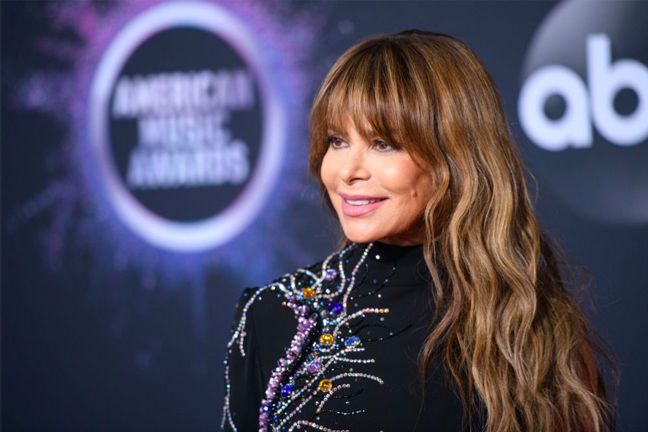Unfortunately, long after the beginning of the #MeToo movement, new stories are still breaking. For megastar Paula Abdul, her #MeToo journey is still unfolding as she recently spoke out about abuse she endured in the early 2000s. Ms. Abdul alleges producer Nigel Lythgoe sexually assaulted her during her stint on American Idol from 2002 to 2009 and on So You Think You Can Dance in 2014. Not only does Ms. Abdul claim sexual assault, sexual harassment, gender violation and negligence, but she also claims entertainment companies like American Idol Productions knew about Mr. Lythgoe’s behavior and did nothing to prevent it or protect her.
An issue which arises in many sexual assault cases is the statute of limitations, the timeclock that is the pressure cooker for all plaintiff’s attorneys. An exception to the general rule for the statute of limitations is the delayed discovery exception, “which postpones accrual of a cause of action until plaintiff discovers, or has reason to discover the cause of action.”[i] Under this rule, “the statute of limitations begins to run when the plaintiff suspects or should suspect that her injury was caused by wrongdoing, that someone has done something wrong to her.”[ii]
The Sexual Abuse and Cover-Up Accountability Act went into effect on January 1, 2023[iii] and revived civil claims of sexual abuse against adults when at least one entity is liable for a victim’s damage or for engaging in cover-up of sexual assault which would have otherwise been barred by the statute of limitations.
Ms. Abdul’s lawsuit details some of the alleged attacks by Mr. Lythgoe, including an instance in an elevator and one at Mr. Lythgoe’s personal residence. While these instances are seemingly only between two people, Ms. Abdul’s lawsuit makes it clear that Mr. Lythgoe’s employers were affirming this behavior because they were:
“doing nothing to investigate, supervise, or monitor Lythgoe to ensure the safety of their employees, agents, or subordinate[s] to Lythgoe in his capacity [as] an executive producer on American Idol and/or So You Think You Can Dance, or in his capacity as president of a division of 19 Entertainment.”[iv]
The Sexual Abuse and Cover-Up Accountability Act has made it possible for Ms. Abdul to pursue justice by filing her lawsuit. This Act has also opened the door for costly litigation against corporations, especially those who have turned a blind eye to the behaviors of its employees. Not only is it important to ensure a positive and safe working environment, but it is also equally necessary to create and establish company policies ensuring a defense against litigation. It is time to take a good hard look at company policy regarding reporting and investigation sexual assault allegations. The #MeToo movement has provided a world stage for the gaping holes in the entertainment industry standards and practices, but what about corporations with a little less limelight? With the start of the new year, it is the perfect time to be Straight Up with yourself and protect your employees and corporation from those “cold hearted snakes that don’t like playing by the rules.”[v]
Keep Reading
Sources
[i] Fox v. Ethicon Endo-Surgery, Inc. (2005) 35 Cal.4th 797, 807
[ii] Jolly v. Eli Lilly & Co. (1988) 44 Cal.3d 1103, 1110.
[iii] AB-2777 Sexual Assault: Statute of Limitations; https://leginfo.legislature.ca.gov/faces/billNavClient.xhtml?bill_id=202120220AB2777
[iv] Paula Abdul v. Nigel Lythgoe, et al. (2023) 23STCV31886.
[v] “Cold Hearted” by Paula Abdul (1988)

 Author: McKenzie Cannata
Author: McKenzie Cannata
 Editor: Grace Shuman
Editor: Grace Shuman
 Cannabis Workers Allege Quota to Trim 4 Pounds a Day Violates the California Labor Code
Cannabis Workers Allege Quota to Trim 4 Pounds a Day Violates the California Labor Code
 The Ninth Circuit Reminds Us: Every Word Matters
The Ninth Circuit Reminds Us: Every Word Matters
 NO WAY, PRO SE! The Consequences of Abusing the Judicial System as a Pro Se Litigant in Colorado
NO WAY, PRO SE! The Consequences of Abusing the Judicial System as a Pro Se Litigant in Colorado
 Victim of Financial Mismanagement or Unlawful Retaliation? New Jersey City University Program Founder Claims School Retaliated After Reporting Alleged Sexual Harassment
Victim of Financial Mismanagement or Unlawful Retaliation? New Jersey City University Program Founder Claims School Retaliated After Reporting Alleged Sexual Harassment
 “Real Housewives” Gets a Reality Check
“Real Housewives” Gets a Reality Check
 Missing a Chapter: Insufficiency of Expert Deposition Testimony in Medical Malpractice Litigation
Missing a Chapter: Insufficiency of Expert Deposition Testimony in Medical Malpractice Litigation
 Crash Course: Why Summary Judgment Misses the Mark in Illinois Multi-Cause Limousine Crash Collision
Crash Course: Why Summary Judgment Misses the Mark in Illinois Multi-Cause Limousine Crash Collision
 Bitter Truths: Lead, Cadmium, and Defective Pleadings in California Chocolate Class Action
Bitter Truths: Lead, Cadmium, and Defective Pleadings in California Chocolate Class Action
 The Law of Unintended Consequences: Including Insurance Brokers in Litigation Strategy Communication May Waive the Attorney-Client Privilege
The Law of Unintended Consequences: Including Insurance Brokers in Litigation Strategy Communication May Waive the Attorney-Client Privilege